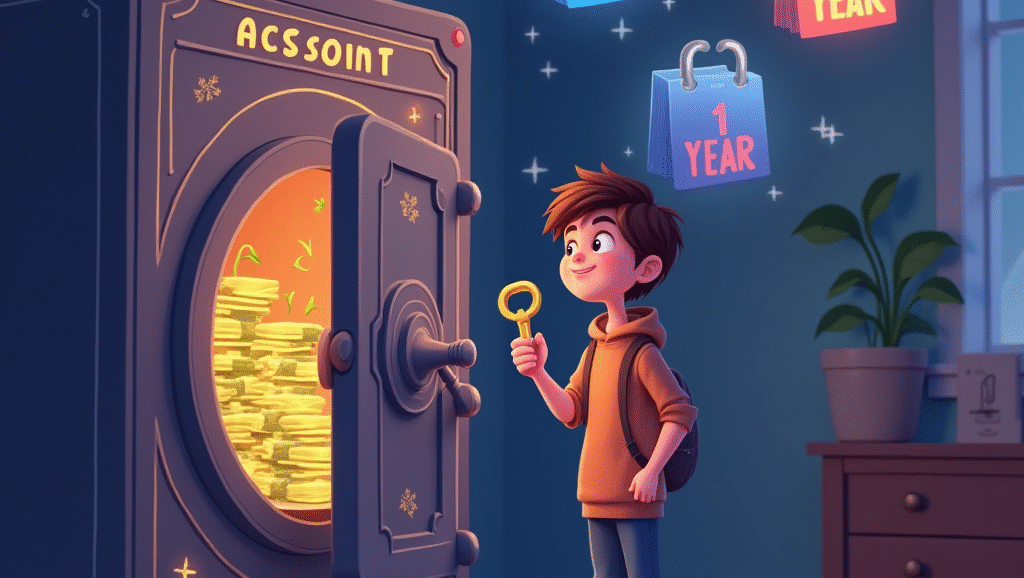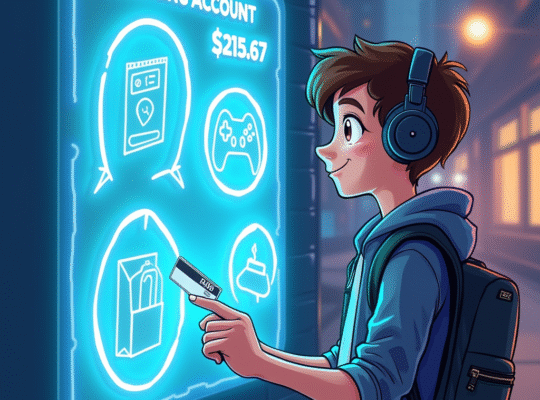A Certificate of Deposit, or CD, is a type of bank account where you agree to leave your money in the bank for a set period of time — like 6 months, 1 year, or even 5 years. In exchange, the bank gives you a higher interest rate than a normal savings account.
But here’s the deal: once your money is in a CD, you usually can’t take it out early without paying a penalty. So, it’s not for everyday spending — it’s for money you won’t need for a while.
You’re basically saying:
“I’ll let you keep this money safe and untouched for 12 months — just pay me a little more interest than usual.”
How It Works (Simple Breakdown)
- You pick a term — like 6 months or 1 year
- You deposit a fixed amount — for example, $500
- You leave it alone until the term ends (called the maturity date)
- You earn interest at a fixed rate
- You get back your money + interest at the end
The longer the term, the higher the interest rate usually is.
Pros (Why People Use CDs)
1. Higher Interest
CDs usually offer better interest rates than savings accounts or money market accounts — especially for longer terms.
2. Safe and Predictable
CDs are low-risk. The interest rate is fixed, so you know exactly how much you’ll earn.
3. Encourages Saving
Since your money is locked in, it removes the temptation to spend. It’s a good way to save for something long-term.
4. FDIC-Insured
Like most bank accounts, CDs are usually insured by the government (up to $250,000), which makes them extra safe. Meaning, if the bank loses your money by any means each account per person is guaranteed up to $250,000. But only if the bank is FDIC-Insured.
Cons (What to Watch Out For)
1. Early Withdrawal Penalties
If you take your money out before the term ends, the bank will charge you a fee — often by taking away some (or all) of the interest you earned. Sometimes, even part of the principal amount.
2. No Access to Your Money
Once your money’s in, it’s locked up. You can’t add more money, and you can’t take it out unless you’re okay with losing money to penalties.
3. Missed Opportunities
If interest rates go up while your money is stuck in a CD, you’re stuck with the old rate until it matures.
Things to Look Out For
- Choose the right term. Only put money in a CD that you won’t need during that time.
- Compare interest rates. Online banks often offer higher CD rates than local banks.
- Know the penalty rules. Some banks are stricter than others about early withdrawals.
- Ask about auto-renewal. Some CDs automatically restart with the same term unless you tell the bank otherwise — don’t get caught off guard.
Best For
- People saving for something 6–12 months or more away
- Anyone with extra money they don’t need to use right away
- Teens who want to “lock away” savings to resist spending
- Building good habits with long-term goals (college, travel, big purchases)
A CD isn’t for everyday use — it’s for when you want to commit to saving. You’re telling your future self, “Hey, I’ve got you. I’m putting this away so it’ll be even better when you get there.”
It’s not flashy. You won’t get rich off a CD. But if you’re patient, it can quietly grow your money in the background — without any risk or stress.





